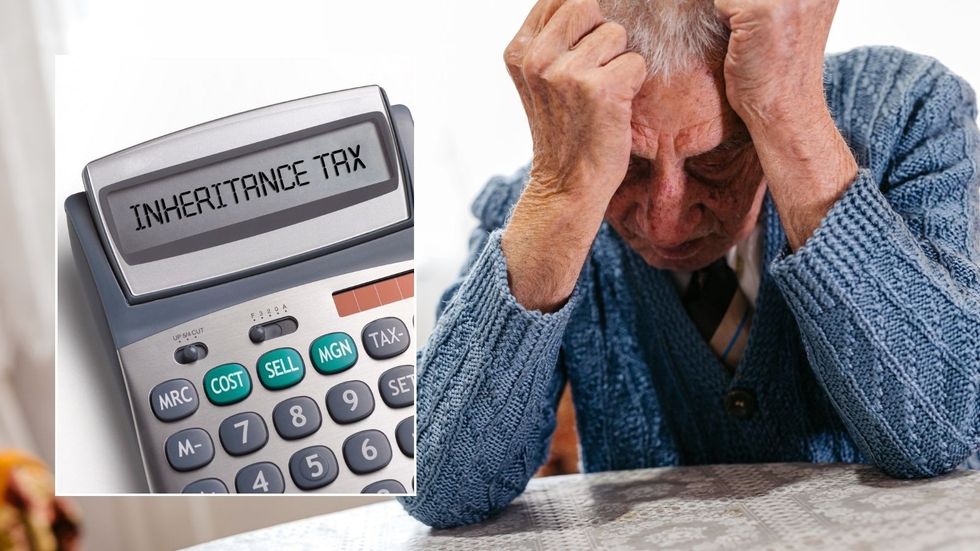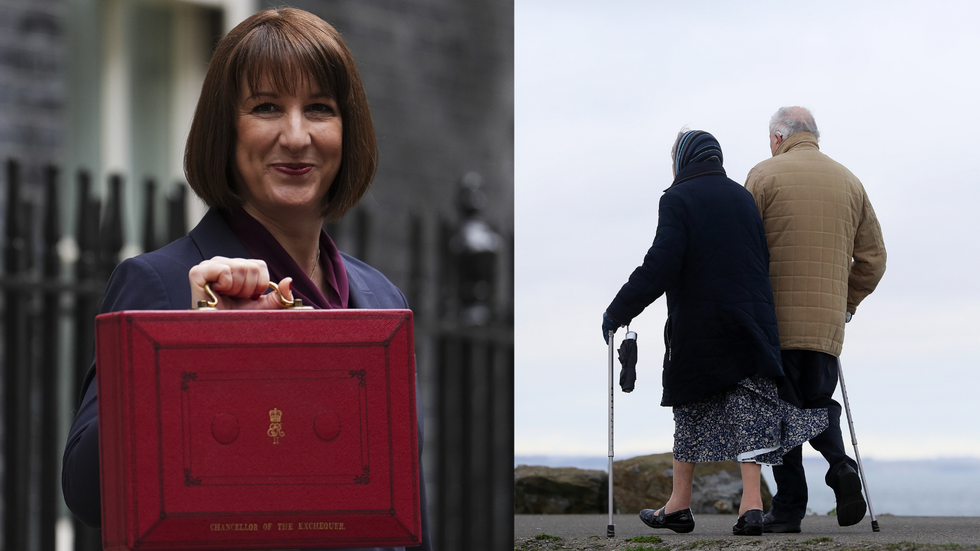Jim McMahon reacts to the farmer fury on the inheritance tax raid
GB NEWS
The Chancellor is making big changes to inheritance tax which could impact your pension savings
Don't Miss
Most Read
Trending on GB News
Major changes to inheritance tax rules are set to come into force from April 6, 2027, affecting how pension death benefits are treated for tax purposes.
The new rules, announced in the 2024 Autumn Budget, will mean that most unused pension death benefits will be included in estate calculations for IHT.
Experts are warning this significant shift could force many retirees to reconsider their inheritance tax planning strategies.
There is one key exception to these new rules: if the deceased has a spouse or civil partner and the pension is paid to them, it won't be subject to IHT due to the existing spousal exemption.
The changes are currently subject to a consultation period, meaning the final details are not yet guaranteed. Under the proposed changes, pension providers and estate administrators will work in close partnership to manage the inheritance tax process.
Do you have a money story you’d like to share? Get in touch by emailing money@gbnews.uk.

Experts are urging Britons to "up pension contributions"
GETTYEstate handlers will use an HMRC calculator to determine if IHT is due and calculate the applicable nil rate band for the pension. This information will then be shared with the pension provider, who will be responsible for calculating the precise amount of IHT due on the pension.
The pension provider will take on the responsibility of paying the tax directly to HMRC. Only after the tax has been paid will the remaining death benefits be distributed to the designated beneficiaries.
This new system creates a streamlined process for handling pension-related inheritance tax, with clear responsibilities for all parties involved.
To illustrate the impact of these changes, Hargreaves Lansdown used the example a married couple with combined assets of £1.7million and a pension worth £1million.
 Rachel Reeves has targeted pensions and farmers with inheritance tax changesGB News
Rachel Reeves has targeted pensions and farmers with inheritance tax changesGB NewsUnder current rules (before April 2027), their £1.7million estate would receive a tax-free allowance of £1million, leaving £700,000 subject to inheritance tax. This results in an inheritance tax bill of £280,000, with the pension remaining outside the estate calculations.
However, from April 2027, the inclusion of their £1million pension will increase their total estate to £2.7million. This dramatic increase pushes their estate well above previous thresholds, fundamentally changing their tax position.
The example assumes the estate, including their home, would first pass to the surviving partner and then to their children. The increased estate value has significant implications for tax-free allowances under the new rules.
Because the total estate exceeds £2million, the couple will lose their residence nil rate band, which is worth up to £350,000. This reduction occurs at a rate of £1 for every £2 that the net estate exceeds £2million.
With the loss of this allowance, their tax-free amount drops to just £650,000. This leaves a much larger taxable estate of £2.05million, a substantial increase from the previous £700,000.
As a result of this, this particular household would face an inheritance tax bill worth £820,000 with this pending hike.
LATEST DEVELOPMENTS:
 Pension savers are making more contributions to their pots.GETTY
Pension savers are making more contributions to their pots.GETTYDespite these tax changes, pensions remain fundamentally about securing retirement income. Financial experts emphasise the importance of maintaining focus on building a robust retirement fund.
Hargreaves Lansdown stated: "At the end of the day, pensions are primarily about securing your income during retirement.
"If you’re relying on your pension for later life, it’s still essential to focus on building and maintaining a healthy retirement fund.
"Small actions like upping your pension contributions when you get a pay rise or new job is one way to boost your contributions. You should also make sure you’re making the most of any contributions your employer is making."








